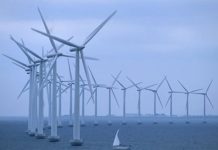Advantages of Hydroelectric Energy
Hydroelectric energy, also known as hydropower, is a renewable and sustainable source of electricity that harnesses the power of flowing or falling water to generate energy. In this article, we will explore the numerous advantages of hydroelectric energy and how it contributes to a greener and more sustainable future.
1. Clean and Renewable Energy
One of the key advantages of hydroelectric energy is that it is a clean and renewable source of power. Unlike fossil fuels, such as coal or oil, which release harmful greenhouse gases into the atmosphere when burned, hydroelectric power produces virtually no emissions. By utilizing the natural flow of water, we can generate electricity without contributing to air pollution or climate change.
2. Abundant and Reliable
Another advantage of hydroelectric energy is its abundance and reliability. Water is a resource that is readily available in many parts of the world, making it a reliable source of power generation. Unlike other renewable energy sources like solar or wind, which are intermittent and dependent on weather conditions, hydroelectric power can be generated consistently, providing a stable and reliable source of electricity.
3. Cost-Effective
Hydroelectric power is often considered a cost-effective energy solution. Once the initial infrastructure, such as dams and turbines, is in place, the operational costs of generating hydroelectric power are relatively low. Additionally, the lifespan of hydroelectric power plants is typically long, resulting in long-term cost savings. This makes hydroelectric energy a financially attractive option for both large-scale power generation and smaller community projects.
4. Water Management and Flood Control
Hydroelectric power plants also offer the advantage of water management and flood control. By constructing dams, water can be stored during periods of excess flow and released during times of high demand. This not only allows for a stable supply of electricity but also helps regulate water levels in rivers, preventing floods and ensuring a consistent water supply for irrigation and other purposes.
5. Multi-Purpose Usage
Hydroelectric power plants often serve multiple purposes, further adding to their advantages. Alongside electricity generation, dams can be used for recreational activities such as boating or fishing, and reservoirs created by dams can provide water for agriculture, drinking, and industrial use. This multi-purpose usage enhances the overall value and benefits of hydroelectric energy.
Conclusion
Hydroelectric energy offers numerous advantages that make it an attractive and sustainable source of power. Its clean and renewable nature, abundant availability, cost-effectiveness, water management capabilities, and multi-purpose usage make it a valuable contributor to the global energy mix. By harnessing the power of water, we can reduce our reliance on fossil fuels and move towards a greener and more sustainable future.
Frequently Asked Questions about the Advantages of Hydroelectric Energy
1. What are the main advantages of hydroelectric energy?
Hydroelectric energy offers renewable and clean power generation, low operating costs, long lifespan of power plants, flood control, and water storage capabilities.
2. How is hydroelectric energy considered a renewable source?
Hydroelectric energy is considered renewable because it relies on the water cycle, which is constantly replenished by rainfall and snowmelt.
3. What makes hydroelectric energy a clean energy source?
Hydroelectric energy is clean because it produces no air pollution or greenhouse gas emissions during operation, contributing to improved air quality and reduced carbon footprint.
4. How do low operating costs benefit hydroelectric energy?
Hydroelectric power plants have low operating costs since they require minimal fuel, have low maintenance needs, and benefit from predictable water flow.
5. What is the lifespan of a typical hydroelectric power plant?
A well-maintained hydroelectric power plant can operate for 50 to 100 years, making it a long-lasting energy generation solution.
6. How does hydroelectric energy contribute to flood control?
Hydroelectric power plants can be used to control and regulate water flow, preventing floods by releasing excess water during heavy rainfall or snowmelt.
7. What are the water storage capabilities of hydroelectric energy?
Hydroelectric power plants can store water in reservoirs, which can be used for various purposes such as irrigation, drinking water supply, and recreational activities.
8. How does hydroelectric energy impact wildlife?
Hydroelectric power plants can have both positive and negative impacts on wildlife. Proper planning and design can minimize negative effects, while reservoirs can create new habitats.
9. Does hydroelectric energy contribute to job creation?
Yes, the development, construction, and maintenance of hydroelectric power plants create job opportunities in engineering, construction, operations, and environmental management.
10. Can hydroelectric energy help reduce reliance on fossil fuels?
Absolutely. Hydroelectric energy provides a sustainable alternative to fossil fuel-based power generation, reducing the dependence on non-renewable energy sources and promoting energy security.
11. What role does hydroelectric energy play in reducing greenhouse gas emissions?
Hydroelectric energy is a significant contributor to greenhouse gas emission reduction, as it produces no direct emissions of carbon dioxide or other harmful pollutants during operation.
12. Are there any social benefits associated with hydroelectric energy?
Hydroelectric energy projects can bring social benefits to local communities, including improved infrastructure, access to electricity, job opportunities, and revenue generation.
13. Can hydroelectric power plants be used in combination with other renewable energy sources?
Yes, hydroelectric power plants can be integrated with other renewable energy sources like solar or wind power to create hybrid systems that provide a more reliable and consistent energy supply.
14. Are there any geographical limitations to the use of hydroelectric energy?
Hydroelectric energy requires a suitable water source, such as rivers or reservoirs, which may limit its availability in certain geographical areas. However, it can be harnessed in many regions worldwide.
15. How does hydroelectric energy contribute to energy independence?
By utilizing its water resources, a country can reduce its reliance on imported energy sources, enhancing energy independence and security.




